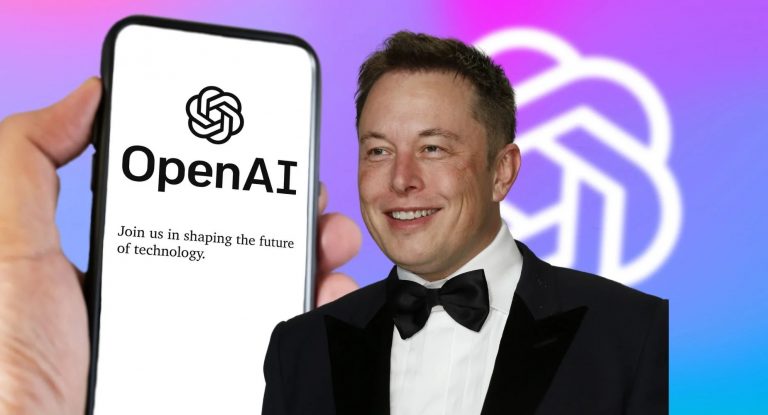
Elon Musk’s antitrust battle against OpenAI following its restructuring to a for-profit organization, has gained momentum, as the US antitrust regulators have expressed support.
According to Bloomberg, a court filing by the Department of Justice (DoJ), and the Federal Trade Commission (FTC) emphasized that overlapping board memberships can harm competition, even after a director steps down.
This position bolsters Musk’s lawsuit, which accuses OpenAl and Microsoft of antitrust violations. The suit highlights Reid Hoffman’s overlapping roles on both company’s boards from 2017 to 2023, and Deannah Templeton’s brief tenure as a Microsoft executive and non-voting OpenAl board member.
Register for Tekedia Mini-MBA edition 19 (Feb 9 – May 2, 2026): big discounts for early bird.
Tekedia AI in Business Masterclass opens registrations.
Join Tekedia Capital Syndicate and co-invest in great global startups.
Register for Tekedia AI Lab: From Technical Design to Deployment (next edition begins Jan 24 2026).
The agencies stated that companies ceasing potentially illegal practices still bear a “heavy burden” to prove the behavior won’t recur. While they did not address the legality of OpenAl’s restructuring itself, their filing supports Musk’s argument about the competitive risks posed by overlapping directorships.
The intervention by the Federal Trade Commission (FTC) and the Department of Justice (DoJ), does not imply a stance on the case’s merits but rather offers a legal framework that could be pivotal in the upcoming hearing.
Recall that Musk had asked the federal court in November to halt OpenAI from transitioning to a for-profit business, accusing them of breaching a contractual agreement. In a response to Musk’s lawsuit, OpenAI via a blogpost disclosed that Musk wanted a for-profit organization.
The company noted that in 2017, Musk not only wanted but created a for-profit as OpenAl’s proposed new structure. The artificial intelligence company noted that when Musk didn’t get major equity and full control, he walked away.
OpenAl wrote,
“Elon Musk’s latest legal filing against OpenAl marks his fourth attempt in less than a year to reframe his claims. However, his own words and actions speak for themselves. In 2017, Elon not only wanted but created a for-profit as OpenAl’s proposed new structure. When he didn’t get majority equity and full control, he walked away and told us we would fail. Now that OpenAl is the leading research lab and Elon runs a competing Al company, he is asking the court to stop us from effectively pursuing our mission.”
“You can’t sue your way to AGI. We have great respect for Elon’s accomplishments and gratitude for his early contributions to OpenAl, but he should be competing in the marketplace rather than the courtroom. It is critical for the U.S. to remain the global leader in Al. Our mission is to ensure AGI benefits all of humanity, and we have been and will remain a mission-driven organization. We hope Elon shares, that goal, and will uphold the values of innovation and free market competition that have driven his success.”
Fast forward to 2023, Elon Musk launched his AI firm xAI as a direct competitor to take on OpenAI. Last year December, xAI raised $6 billion in its latest series C funding round. The company announced that the funds secured will be used to take its first products, to the market, build advanced infrastructure, and accelerate the research and development of future technologies.
With the recent Series C investments raised, ×Al disclosed that the funds will be used to further accelerate its advanced infrastructure, ship groundbreaking products that will be used by billions of people, and accelerate the research and development of future technologies enabling the company’s mission to understand the true nature of the universe.
Also, the company launched a standalone iOS app for its chatbot, Grok, expanding its usage. The app which was previously exclusive to X (formerly Twitter) users, is now available in beta version in Australia and other select regions, offering advanced generative Al capabilities.
The U.S. antitrust regulators’ support for Musk’s claims against OpenAl’s restructuring carries several implications for OpenAl, including its operations, governance, and public perception. This scrutiny might pressure OpenAl to reassess its board composition and decision-making processes to avoid potential conflicts of interest.
If the court agrees with Musk’s claims, OpenAl could face legal challenges to its restructuring. This might include revisiting its conversion to a for-profit model, which could delay its operations or force changes to its corporate structure.
Notably, allegations of antitrust violations and regulatory investigations can damage OpenAl’s public image, potentially affecting partnerships, investor confidence, and its relationship with the broader Al and tech community.



